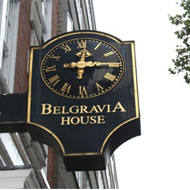Council urges caution over governance changes

Council members were presented with two options for the new governance structure.
Proposals to change the governance of the RCVS could reduce the ability of ordinary practitioners to join the council or stand for presidency, council members have warned.
Significant changes are expected to be made in 2016, though in a meeting of the RCVS Council on March 5, members were largely divided on the best way forward. It was agreed that further work would be done and the profession will be consulted on the issue in around four months.
Council members were presented with two options for the new governance structure - a smaller council of up to 20 members that meets more regularly, or an even smaller council of 11 that works alongside a larger "consultative" body of up to 50 members.
Dr Johnson raised the concern that both options would reduce the ability of ordinary practitioners to join the council.
Several council members, including Stephen May, urged caution and raised concerns about the short timetable for the change. "We do have some more work to do…" Mr May said, "This is the biggest change in all my time on council."
Likewise, while not against governance change, Lynne Hill urged "some slowing down". She said: "One of the big things we've been trying to do as a college…is to engage with the profession…
"Looking at some of these models, where there are far less vets, far less people from practice…that is actually going to remove us from the profession."
By contrast, Professor James Wood, who is a representative on the council from the University of Cambridge, said: "I think there's a real opportunity to make our structures better…
"It's clear to me as a new member of the council there are many things about this structure that don't work particularly well… My view is that we should just get on with it frankly."
Similarly, Richard Davis said that in the five years since he joined the council "process has changed beyond belief and I think confidence in the college has changed beyond belief… To slow things down wouldn't necessarily be a good thing at this stage."
RCVS CEO Nick Stace believes there is a "strong case for reform" as lay member and veterinary nurse representation is essential.
Alongside the other changes, the operational board is considering an extension of the presidential term, from one year to a two or three year term. The president would also get a salary of £60,000. This particular suggestion met with some criticism.
Former president Jacqui Molyneux said she did not support the proposal, as extending the term would "take out swathes of practitioners who would not be able to do it".
Peter Jinman, who is also a past RCVS president, said presidents need support in juggling the role with running a practice. "Three years is not £60,000. Sorry, that's the wrong message," he commented.
Further definition of "what is a president?" is also needed, he added, questioning whether it is an executive or a "titular" role: "That debate needs to be had in deciding what the future of the president is."



 The latest
The latest